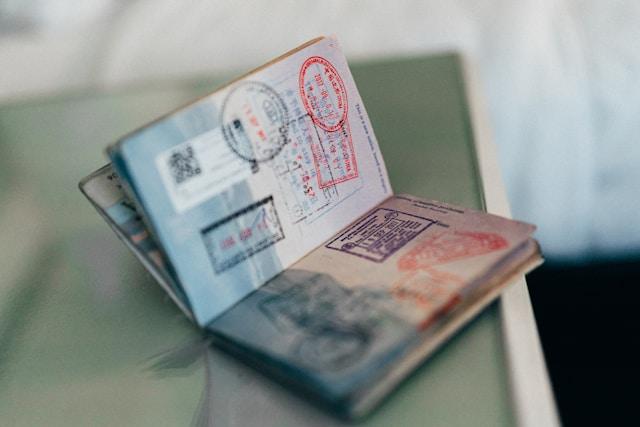|
Download ESL Books + Free PDFs
Save 25% on ESL Books for Teachers & Students Visit the ESL Expat Store and enter "SAVE25" at checkout! |

If you’re from Florida and dreaming of expanding your horizons, teaching English abroad could be your gateway to living and working overseas. Each year, countless Floridians seize the opportunity to explore new cultures while advancing their careers in international settings. This guide will help you navigate the essentials of taking your talents globally, from legal preparations to choosing your new home abroad.
Legal and Visa Requirements
Before you even start imagining living and working overseas, it’s crucial to get the paperwork right. Different countries have varied visa requirements, and the process can be complex. Start by visiting the U.S. State Department’s website for general guidelines, then narrow down to the specific country’s embassy site for detailed requirements. For instance, if you’re aiming to work, you might need a sponsor or a guaranteed job offer to apply for a work visa. Remember, as a Floridian, you have access to several consulates in Miami which can be a valuable resource.

Financial Preparation
Next, let’s talk money. Managing your finances while abroad is no small task. You’ll need to consider everything from currency exchange rates to international banking fees. Setting up a bank account overseas can sometimes be done from the U.S., so check with your bank about international partnerships. Also, keep in mind the cost of living can vary dramatically. For example, living in Bangkok is by 42% less expensive than in Bangkok, so adjust your budget accordingly.
Prepare For The International Move
Hiring professional movers for an international move offers numerous benefits that can make the transition smoother and less stressful. These experts are adept at navigating the complexities of global relocation, including customs regulations and international shipping laws. They provide invaluable services such as help with packing, ensuring your belongings are securely wrapped and boxed according to international safety standards.
Additionally, professional movers have the right tools and experience to handle large, delicate, or unusual items, reducing the risk of damage during transport. By leveraging their expertise, you can focus more on your new adventure and less on the logistics of moving.
Choose the Right Destination
When deciding where to live, several factors come into play. Language barriers, job availability, and climate are just the start. As someone from the Sunshine State, you might find the Mediterranean climate of southern Spain comfortably familiar. But, if you’re in the tech field, cities like Berlin or Singapore might offer more opportunities.
Cultural fit is another critical aspect. It’s important to think about how different life could be in a new country. For example, the laid-back pace in Florida contrasts sharply with the fast-moving lifestyle of Tokyo. Safety and healthcare standards are also paramount. Countries like Canada and Australia are popular among expats for their high safety ratings and excellent healthcare systems.
Transitioning to a new country isn’t just about finding a job; it’s about building a life. Exploring local communities online can give you a feel for the area and help you connect with other expats. Websites and forums offer insights into everyday challenges and how to overcome them, preparing you for what’s ahead.
Remember, each destination offers unique advantages and challenges. Balancing your career goals with personal preferences will help you make the best choice. For those in industries like technology or finance, aligning your destination with cities that are hubs for these sectors can greatly enhance your career prospects. This not only positions you to advertise the essential skills for the modern market that you have, but also immerses you in cultures that could be vastly different from Florida’s beaches and palm trees.
Get Ready For The Cultural Shock
Initially, adjusting to a new culture can be challenging. You can make the transition smoother by learning the local language at a basic level before moving. This can greatly improve your daily interactions.
Another way to do this is to engage with local customs and festivals. This not only enriches your experience but also shows respect for the host culture.
For example, if you decide to live in Japan, participating in local matsuri (festivals) can help you bond with the community. Similarly, even if you already make money online as an English teacher, understanding cultural nuances can improve your teaching effectiveness and help you connect with students from different backgrounds.

Its Important To Stay Connected with Home
Maintaining ties with Florida while you’re abroad is crucial for mental well-being:
- Use social media and video calls to keep in touch with family and friends.
- Subscribe to Florida news outlets to stay updated with what’s happening back home.
How to Find Work Overseas?
Finding a job in a new country requires preparation and strategy. You can use global job portals to apply for positions, and attend job fairs and networking events to meet potential employers.
For instance, if you’re skilled in digital marketing, platforms like LinkedIn can be useful for finding opportunities in cities known for tech and innovation. Also, as you prepare to write a research paper or develop a portfolio, showcase projects that demonstrate skills relevant to international markets.
Succeeding in the Global Workplace Takes Some Effort
Adapting your skills for an international career is crucial. You can do so by:
- Being open to learning and integrating new methods and technologies.
- Understanding and respect workplace cultural differences that may affect communication and team dynamics.
Housing, Transportation, and Education
When moving overseas, it’s important to thoroughly research your housing options to ensure you find a safe and affordable neighborhood. Websites like Expatistan offer helpful cost comparisons that can guide your decision-making process.
For transportation, getting acquainted with local public transit systems is essential. In European cities like Berlin, Paris, and Madrid, public transportation is not only efficient but also often the most convenient way to navigate the city.
For those relocating with children, it’s crucial to find international schools that provide a curriculum similar to what they are accustomed to in Florida. Schools like the International School of Paris or the Berlin Brandenburg International School could be excellent choices, offering familiar educational structures in an international setting.

Living and Working Overseas Is An Experience Worth Living
Living and working overseas is a bold step, but with the right preparation, it can be incredibly rewarding. Make the most of the challenges, and you’ll find that working and living in a new country can offer more than just professional opportunities—it can enrich your life in ways you never imagined.
References:
https://livingcost.org/cost/bangkok/tokyo
More Blog Articles for Teaching and Learning English:
- Hot Seat Game Words and Idioms for Learning English
- Mastering English Listening Skills: 21 Strategies for Language Students
- Fear-Setting Activity for English Language Learners
- What Are The EPIK, JET, FET, and NET Programs For Teaching English?
- The Life And Evolution Of An ESL Teacher
- Managing Culture Shock When Working Abroad
